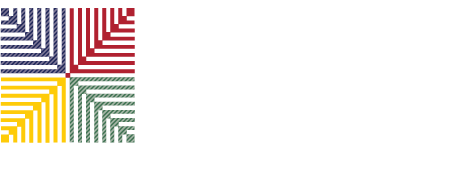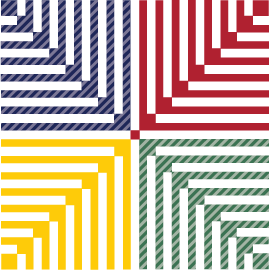Through an artful montage of personal correspondences, diplomatic archives, consular correspondences, audiovisual archives, newspapers, and interviews with the children of Western diplomats who lived in Jaffa, Palestine at the time, filmmaker Maryse Gargour takes us back to Palestine from 1928 up to 1952 and beyond in her film Encounter with a Lost Land, which had its North American Premiere at BPFF on October 26, 2014. The first-hand testimonies of life before, during, and after the 1948 Nakba powerfully recreate everyday life in the urban centers of Jaffa, Jerusalem, and Bethlehem at a fateful time in Palestinian history.
We spoke with Gargour to learn more about how she made this fascinating film.


BPFF: Your film makes artful usage of so many different archival and personal sources. Tell us a little about how you accomplished that.
MG: I always work on testimonies and archives. The BPFF screened my earlier film, The Land Speaks Arabic, at a previous festival some years ago. It was a historical film that was using testimonies and archives of Palestinians who experienced the Nakba.
The thing that is powerful in Encounter is that it is foreign people — French citizens — who for the first time are talking about Palestinian history and life and how it was in the 1920s and 1930s and beyond. That is the most powerful thing in this film – foreigners talking who had deep connections with all of Palestinian society from the bourgeois down to the proletariat. It is their lives that they are talking about, and it is occurring with events of the time. That makes the film intelligent. We very rarely see testimonies of foreign people living in Palestine before the Nakba.
What is also interesting about the film is that it came to me. To tell you a story about the first interviews: After a screening of my other film, The Land Speaks Arabic, a woman approached me and said, “This is my story, and I am the daughter of the Director of the French Hospital in Jaffa, Dr. Boureau.” He was a huge personality at the time, very well known. Most of the people of Jaffa were born by his hands, and he was the director of the French Hospital.
And the stories of the daughter of Dr. Boureau connected with the stories of the others living in Jerusalem, Jaffa, etc. These people were connected. The Embassy knew the family. They were connected and they were friends.
For my previous film, I was working on Jerusalem, Jaffa, and Bethlehem.
Nowadays these 3 cities have different statuses, although in pre-Nakba times, they were all part of the same country, not divided. Nowadays Bethlehem is in the occupied territories, and Jerusalem we don’t know what exactly its status is, and Jaffa is in Israel, and the city has been completely transformed with the Hebrew names.
Susanne, the oldest person in the film, was 90 when I met her and filmed her. Unfortunately she passed away last year… These foreigners wanted to speak. They came to me. For me, it was like a gift. Old people – the youngest one was 75 – all these people knew historical Palestine and they were living with their parents before 1948, starting from the 1920s. So this was a real treasure. It is a treasure.
BPFF: And it is interesting that no one ever thought to talk to those people before about their experience of that history.
MG: As I said before, this film came to me. Even if I wanted to find the children of Dr. Boureau myself alone, maybe I would not be able to find them. They came to me. That is the important point. Two days after she called me, Marie-France, she and her sister who was 84 came to me in Paris to meet me. And I started to film Susanne, the oldest woman, just one month later.
BPFF: So you knew the minute you met them that you would make this film.
MG: Yes. Sometimes life gives you gifts like that. As I said, Dr. Boureau was a celebrity in Jaffa and most of the children — I mean the Palestinians who are now in their 70s — were birthed by his hands. And their parents were also treated in the hospitals by him.
BPFF: What was the most interesting or unexpected thing you learned from the testimonies and accounts that they gave you about the life in that time? What did you as a filmmaker find insightful?
MG: That their accounts aligned exactly with Palestinians’ accounts. “We were having a beautiful life and the Zionists came. And then everything started. The Zionist idea was we want to have a Jewish home in Palestine. Not a state, a home. And the Zionist militias were very strong and aggressive against the Palestinian population.”
And these people whose testimonies I took for the film were witnesses to, as well as participants in, all this. That is very important. For example, you have the daughter of the Consul Neuville, she is called Sabine Neuville. At the same time, she relayed to me that she had met Count Bernadotte half an hour before he was killed. But I couldn’t put everything in the film – I had to edit. And she said goodbye to Cunningham, who was the head of the British Mandate army in Palestine, and she saw him before the English left. So as I said, they were both witnesses to, and participants in, this history.
BPFF: In the film there is a connection to your family, correct?
MG: This also is a gift, a very surprising thing. The children of Dr. Boureau and the Boureau family were sharing the same building with the Gargour family. It just so happened that they were my cousins.
BPFF: Did she know that when she asked to speak with you initially, or is that something you discovered together?
MG: No she knew, when she saw my previous film, she knew that I was a filmmaker and that I was from the Gargour family. And they were neighbors. So that is why – it is really something – it could have been the Bustani family or any other family, but it was the Gargour family.
BPFF: And so beyond the film, did she share details with you, like personal historical details?
MG: I have heard a lot of stories from my mother and my family. These testimonies I got from them for the film confirmed many things about the events that happened over there. You know, when you hear about Palestine when you are a child, you hear about Palestine and you don’t really know the place. When I go there and film, the reality is so different from the stories we heard. And this is very difficult and very painful. Because the Palestinian identity was erased. The Palestinian population is gone. So it is no more. And Susanne and Marie-France said before when we were living with the Palestinian population, we didn’t see anything written in Hebrew, and suddenly after 1948 we started seeing Hebrew and everything was changed. They were taking the city.
BPFF: Talk a bit about the archival research that you did for this film. Can you tell us about the archival research and how you came across those resources?
MG: First of all, in seeing these families, they opened all their archives, their personal archives. Everything – the correspondence of the father – it is real archives, personal correspondence that Dr Boureau was writing to his family in France. He was telling about his daily life to his family in France. So this is a testimony that is very important. Starting from the 1920s, he was relaying… life is like this, the villages were like that – telling the story of the Palestine he was living in at the time. His children gave this to me. Then all the objects and the papers that were interesting for the film were given by the families.
And of course in the historical archives in France, the diplomatic archives, where you have the writings of the consuls, the consuls of France, saying “The situation is like this, in this part you have that, we are receiving so many immigrants…” a lot of diplomatic correspondence is given by the consuls of France to the Ministry of Palestinian Affairs. So I had a huge amount of material. The problem wasn’t finding material; it was more in choosing what to put in to the limited time we had in the film. There was a lot of archival material I wanted to use, but I couldn’t include it all. These archives are open for any researcher who is interested.
For The Land Speaks Arabic, I used archives in Washington. For Encounter, because we were talking about France, I thought it was interesting to take the testimonies of the daughter of the consul and juxtapose those against the consul’s own writings. It was more interesting that way. Because in the archives, everything is written; all is documented.
BPFF: How did you get into filmmaking?
MG: I worked a lot in TV making documentaries. I made a lot, a lot of small documentaries and reports on many subjects. Then I moved to Paris. I am a former journalist and I have a PhD in the Science of Information.
The Palestinian history was very important for me. And it is something that comes over and over in my life, and there are so many things to be said. I can’t simply report about Palestine; I have to delve more deeply into the subjects. My way of working is to go into history, because all that is happening in Palestine now is the consequence of history. I work like this – slowly, but deeply. I am not as interested in what is happening now as I am in the history.
–Kate Rouhana for BPFF
Encounter with a Lost Land screens Sunday, October 26, 2014 at the Museum of Fine Arts, Boston at 1 pm as part of a thematic thread on Restoration. View the full festival schedule and buy tickets here.

